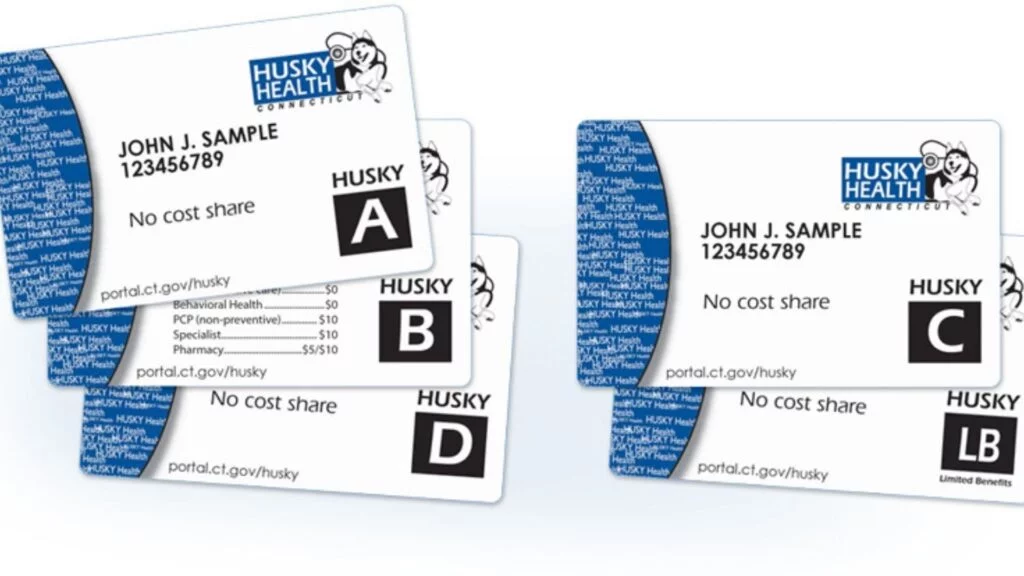Connecticut Medicaid: A Guide to Government Health Insurance in Connecticut
Connecticut Medicaid is a public health insurance program for low-income residents. It is also known as HUSKY Health. It covers several mandatory services, including hospital care and physician services. It is available to children, pregnant women, parents, and seniors.

Connecticut Medicaid offers low-income residents a variety of health care coverage. It is funded jointly by the state and federal governments and is managed and administered at the state level within federal guidelines. A number of programs are offered under the Connecticut name, including HUSKY C (aged and blind adults) and MED-Connect (Medicaid for Employees with Disabilities).
The HUSKY program is broken into several parts:
- HUSKY A covers low-income children (57% of enrollees; 29% of total costs)
- HUSKY B Connecticut’s version of the Children’s Health Insurance Program (CHIP); and MED-Connect, Medicaid for employees with disabilities (10% of enrollment; 38% of total costs)
- HUSKY C – Formerly known as Medicaid for the Aged/Blind/Disabled (MABD). It is for older adults and for persons with disabilities. This category includes both Medicaid and Medicaid for Employees with Disabilities.
- HUSKY D is For low-income adults age 19-64 who do not qualify for HUSKY A and who do not have minor children.
In 2012, the state moved away from private managed care organizations that were paid a flat fee per member to a self-insurance model that focuses on care coordination. Connecticut’s Medicaid costs are stable and growing slower than the rest of the nation.
Medicaid’s biggest cost driver is hospital services, which account for a third of total spending. However, hospitals have also seen the biggest reductions in rates over the last year. The Connecticut Medicaid website provides resources for providers, including billing manuals, bulletins, and program regulations. It also offers information on Electronic Data Interchange and the Automated Eligibility Verification System.
Eligibility Criteria
Before applying, it’s helpful to review the eligibility criteria for the specific HUSKY plan you’re interested in. Eligibility is often based on income, age, household size, and other factors.
Applicants must be a resident of the State of Connecticut and a U.S. citizen or legal permanent resident to qualify for a medicaid program. A valid Connecticut driver’s license or state ID card is often sufficient proof of residency. The applicant must also have a mailing address in the state.

Connecticut Medicaid Application
The application process for the HUSKY Health program in Connecticut, like many state Medicaid programs, is designed to be accessible, but it does require providing certain information to determine eligibility.
You’ll need to provide proof of income, identity, citizenship or immigration status, and other necessary information. Commonly required documents include:
- Birth certificates or passports
- Social Security cards
- Pay stubs or tax returns (for income verification)
- Proof of residency (like a utility bill)
- Relevant immigration documents (for non-U.S. citizens)
Apply Connecticut Medicaid Online
The most common way to apply is through the Access Health CT website, which is Connecticut’s health insurance marketplace. This website will guide you through the application process, allowing you to input your information and upload any necessary documents.
Apply in Person or Over the Phone: If you prefer not to apply online, you can also apply in person at a Department of Social Services (DSS) field office or over the phone. The state often provides assistance for those who might have trouble with the online system or need help in other languages.
Once you’ve submitted your application, it will be reviewed to determine your eligibility. This process may take a few weeks. During this time, you might be contacted for additional information or clarification. Once a decision has been made, you’ll be notified about your eligibility and, if approved, the details of your coverage.
If you’re approved, the next step is typically to select a healthcare provider or managed care plan from the options available under the HUSKY program. Some plans might have certain doctors or networks associated with them.
Note that Medicaid and HUSKY Health coverage is not perpetual. You’ll need to renew your coverage periodically, and this often involves providing updated information to confirm that you’re still eligible.





